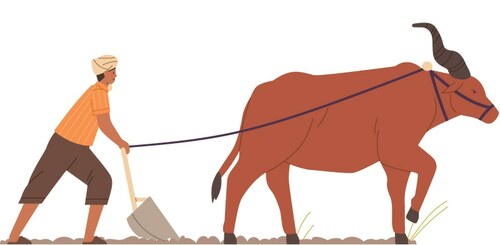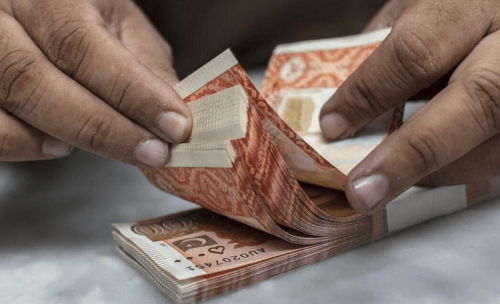The International Monetary Fund’s (IMF) nine-month $3 billion Stand-By Agreement (SBA), to be approved by the executive board hopefully this week, offered Pakistan a desired breather and allayed the fear of default in a troubled economy amid political and judicial turmoil. Businesses heaved a sigh of relief, and the market reacted positively.
Should distressed commoners also rejoice the SBA?
Sorry, but they can’t. All signs point to more troubles ahead for regular Pakistani families. Prime Minister Shehbaz’s reassurances of shielding households from the vagaries of the IMF’s conditionalities ring hollow when the prior actions, such as the budget revision to fetch the IMF deal, are analysed.
After the budget announcement on June 9th, the Fund expressed reservations publicly with Pakistan over revenue measures, spending projections, import restrictions and the amnesty scheme for emitters.
In the last-ditch effort to secure the leftover $2.5bn of the Extended Fund Facility (EFF) before its termination on June 30th, the government did try to pacify the donor.
All signs point to more troubles ahead for regular Pakistani families
On June 24th, Finance Minister Dar announced Rs240bn tax measures, increased the petroleum levy by Rs10 per litre to Rs60, applied spending cuts, lifted import restrictions and withdrew the proposed amnesty. The government couldn’t save the EFF that expired without full disbursement but did manage to fetch the $3bn SBA.
To jack up revenues and drag the fiscal deficit down, instead of broadening the tax net by roping in untaxed and undertaxed sectors like realtors, retailers and agriculturists, Mr Dar opted for an easier secured option. He revised up rates for tax-compliant salaried classes whose tax is deducted at source.
“If the pre-steps are harsh, what the post-steps be like is anybody’s guess. An increase in petroleum levy and electricity/gas rates at the top of higher income tax will squeeze the middle classes further. I don’t see any ‘feel good’ sentiment in society anytime soon,” commented a watcher critical of the government.
The IMF message is clear, like before. The press release was posted on the IMF’s website after SBA’s understanding. It reads: “Steadfast policy implementation is key for Pakistan to overcome its current challenges, including through greater fiscal discipline, a market-determined exchange rate…, and further progress on reforms, particularly in the energy sector.”
When quizzed by journalists, Prime Minister Shehbaz and Finance Minister Dar admitted that the inflation may not ease as fast as people would want but insisted that with improvement in the trust level of bilateral and multilateral development partners and a boost in business confidence, the economy will start looking up and over time the gains will trickle down to people.
Some analysts were jubilant and projected the IMF deal as a long-awaited breakthrough for Shehbaz’s government, which had little to show for its tenure in a stagnating economy.
Independent analysts acknowledged the value of SBA in the current situation but were not necessarily optimistic, particularly because of the impending election cycle.
“It would be hard for any government to stay the course, but when three different governments are expected to rule Pakistan over the next nine months, it would certainly be harder if not impossible,” a top gun said anonymously.
The current government is expected to dissolve assemblies in August, followed by a caretaker set-up that will transfer power to the party voted to power in elections.
The prime minister stated categorically that the government will ensure that the burden of IMF’s conditionalities is not universalised and falls exclusively on the moneyed classes. “If things go as planned, his government will end next month, and he can’t speak on behalf of those who would come after him,” commented an economist in Lahore.
Ehsan Malik, CEO Pakistan Business Council, was critical of revenue measures. “If by ‘elite’ the reference is to the 3pc people who pay 90pc of direct taxes, then certainly they will face hardship and carry a disproportionate burden for securing IMF’s assistance.
“Wholesalers, retailers and the undocumented real estate sector escaped taxes even when the country desperately needed their contribution.”
He opined they were spared for political reasons. “They are the vote bank of parties and have shutter-down power which large businesses in the formal sector or the salaried employees don’t have.”
He wondered why the IMF has been silent on the narrow tax base in the country. “Also, higher utility tariffs will impact industry and commerce that pay their bills as the government chooses to skip the fundamental reforms of energy distribution losses and theft.” He advised substituting the term ‘elite’ in Pakistan with ‘the taxed’ and ‘the untaxed privileged’.
In his opinion, the current policies will lead to further fragmentation of businesses. “Would businesses be encouraged to consolidate and grow only to be taxed at a higher rate for their contribution to employment?” he argued.
“A large number of economic stakeholders feel that the real elite in Pakistan in various key segments of the economy, including agriculture, wholesale and retail, professional services and real estate, have once again not been brought into the tax net which otherwise would have made the government economically much more strong, said Overseas Investors Chamber of Commerce & Industry General Secretary Abdul Aleem.
The current and past leaders of the Federation of Pakistan Chamber of Commerce and Industry sounded upbeat. Most traders saw SBA as a big achievement of the current government.
“I am happy if the elite class is taxed more. The government must fulfil all obligations of the IMF. I think inflation will come down to some extent immediately as the rupee gains strength.”
Published in Dawn, The Business and Finance Weekly, July 10th, 2023














































Dear visitor, the comments section is undergoing an overhaul and will return soon.